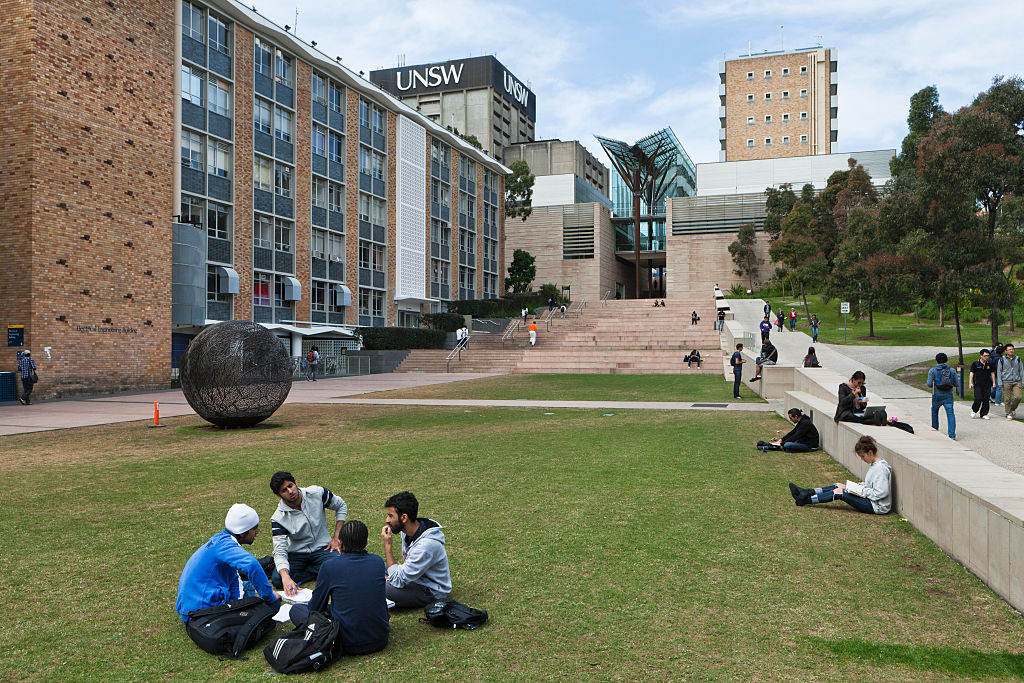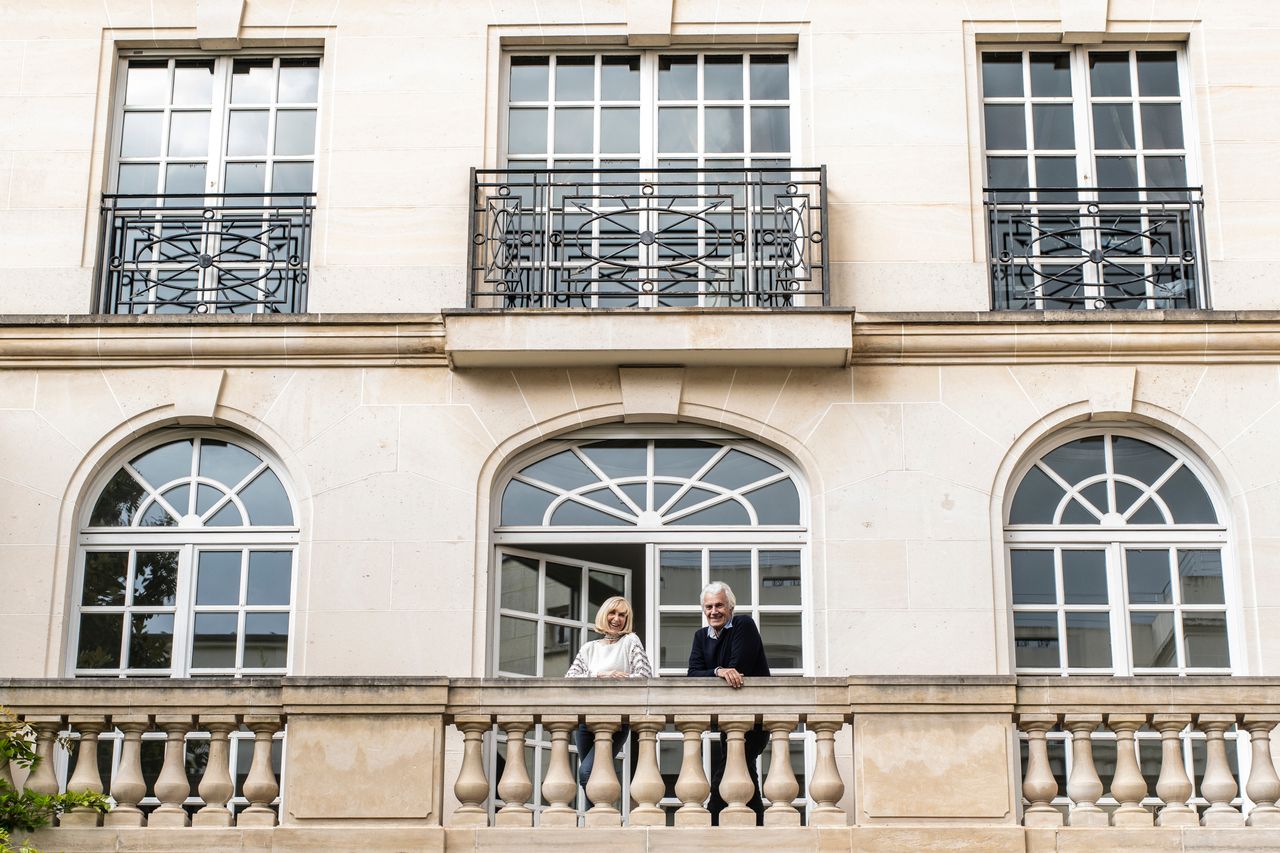Covid-19 Leaves Universities Short On International Students—And Money
Experts on the sector say it will take years for the schools, among the best in the world, to recover from the economic damage.
SYDNEY—Australia’s decision to close its borders protected it from the coronavirus. But that policy is wreaking havoc on the country’s universities, which relied on lucrative tuition from foreign students who are stuck overseas.
Experts say it will take years for the schools, among the best in the world, to recover from the economic damage. Already, Australian universities have cut more than 17,000 jobs, according to industry group Universities Australia. It said operating revenue fell 4.9% last year and is expected to fall another 5.5% this year.
“As students finish and we haven’t got new ones coming, we’re yet to hit the bottom basically,” said Peter Hurley, a policy fellow at the Mitchell Institute for Education and Health Policy, which forecast that the country’s universities could lose up to $15 billion in international tuition through 2023.
Leaders all over the world have needed to balance protecting their populations from the virus with the economic damage that those policies can cause. But with a vaccine rollout expected to start in Australia soon, pressure is ramping up on conservative Prime Minister Scott Morrison to provide clarity on how and when international students could return.
Leaders in the nation’s states and territories have pressed for some places in the quarantine system to be reserved for international students, but Mr. Morrison has argued that returning Australians must come first. Thousands of Australians remain stranded overseas because the government has imposed caps on returning travelers, part of an effort to ease pressure on its hotel quarantine system and to minimise the risk of highly contagious variants of the coronavirus from spreading into the community.
The matter could be discussed at a cabinet meeting later this week. Any change in policy could signal whether Mr. Morrison is ready to loosen border restrictions with vaccines on the horizon.
Phil Honeywood, chief executive of the International Education Association of Australia, said overseas students are starting to doubt that they will return to Australia this year. He is concerned some students may drop out and go study in other countries like Canada, the U.K. and the U.S.
“The stickability of those students is now in question,” he said.
Ahmed Korayem, a 32-year-old in Egypt, wasn’t sure whether to start a master’s program in compliance and regulation at an Australian university because of the country’s border closures. He worries that studying online wouldn’t be the same as being there in person and that it would be difficult to interact with his professors because of the time difference.
Mr. Korayem has decided to enroll at school, but he said a prolonged period of border closures could force him to drop out later.
“If it’s three months and then I would be able to move and continue my studies face-to-face, I can handle this. If it’s more than that, then I think no,” Mr. Korayem said. “The uncertainty can be stressful.”
Foreign students, particularly from China and India, have been lured to Australia by its relative proximity to Asia, easy access to visas and high-quality schools. Australian universities charged them higher fees than domestic students; international tuition at one point made up more than 40% of student revenue at universities, according to an estimate from the Mitchell Institute.
Although students can study remotely online, international-student enrollments were already down 14% as of November, according to Australian government data. The number of international students physically in the country has fallen further—and is down about 35% when compared with pre-pandemic levels—according to the Mitchell Institute’s Mr. Hurley.
“I don’t think anybody had on their risk scenarios literally no international travel,” said Paul Duldig, chief operating officer at Australian National University in Canberra, the capital. The school estimates its international-student tuition fees fell last year by about 30%.
Aside from cutting staff, universities are delaying campus improvements and eliminating fields of study. Australia’s reputation for producing important academic research is also at stake, given that universities used much of that international tuition to fund scholarly pursuits. About 11% of Australia’s researchers, including postgraduate students and staff, could lose their jobs due to the decline in fees from international students, according to research from the Melbourne Centre for the Study of Higher Education.
To make up for the revenue decline, the Australian government included about $770 million in aid to fund university research in this financial year’s budget. But a long-term solution depends on allowing international students back into the country, according to academics who have studied university finances.
Before the pandemic, Australia was the third top destination for international students, behind the U.S. and the U.K., according to United Nations data. Australian universities were also more reliant on international students than other countries. In 2018, 27% of all students in higher education in Australia were from overseas, according to data from the Organization for Economic Cooperation and Development, a group of wealthy countries that has 37 members. That was the second highest percentage in the OECD, behind tiny Luxembourg. In the U.S., just 5% were international students.
At Monash University, one of Australia’s top research schools, tuition from international students fell $85 million last year and overall revenue dropped by $270 million, a nearly 5% decline. The school is cutting 277 jobs and eliminating 2% of its courses. It is also shelving or deferring long-term building plans, including a new medical educational center, a biomedical teaching facility and an artificial-intelligence and data-science building.
Margaret Gardner, president and vice chancellor of the university, said having international students on campus enriches the academic experience for domestic students who get exposed to different cultures and viewpoints even if they are going to school close to home.
“It’s not just about plugging a hole,” she said. “I can’t begin to tell you how much difference it makes to the education you provide.”
 Copyright 2020, Dow Jones & Company, Inc. All Rights Reserved Worldwide. LEARN MORE
Copyright 2020, Dow Jones & Company, Inc. All Rights Reserved Worldwide. LEARN MORE
This stylish family home combines a classic palette and finishes with a flexible floorplan
Just 55 minutes from Sydney, make this your creative getaway located in the majestic Hawkesbury region.
As Paris makes its final preparations for the Olympic games, its residents are busy with their own—packing their suitcases, confirming their reservations, and getting out of town.
Worried about the hordes of crowds and overall chaos the Olympics could bring, Parisians are fleeing the city in droves and inundating resort cities around the country. Hotels and holiday rentals in some of France’s most popular vacation destinations—from the French Riviera in the south to the beaches of Normandy in the north—say they are expecting massive crowds this year in advance of the Olympics. The games will run from July 26-Aug. 1.
“It’s already a major holiday season for us, and beyond that, we have the Olympics,” says Stéphane Personeni, general manager of the Lily of the Valley hotel in Saint Tropez. “People began booking early this year.”
Personeni’s hotel typically has no issues filling its rooms each summer—by May of each year, the luxury hotel typically finds itself completely booked out for the months of July and August. But this year, the 53-room hotel began filling up for summer reservations in February.
“We told our regular guests that everything—hotels, apartments, villas—are going to be hard to find this summer,” Personeni says. His neighbours around Saint Tropez say they’re similarly booked up.
As of March, the online marketplace Gens de Confiance (“Trusted People”), saw a 50% increase in reservations from Parisians seeking vacation rentals outside the capital during the Olympics.
Already, August is a popular vacation time for the French. With a minimum of five weeks of vacation mandated by law, many decide to take the entire month off, renting out villas in beachside destinations for longer periods.
But beyond the typical August travel, the Olympics are having a real impact, says Bertille Marchal, a spokesperson for Gens de Confiance.
“We’ve seen nearly three times more reservations for the dates of the Olympics than the following two weeks,” Marchal says. “The increase is definitely linked to the Olympic Games.”

Getty Images
According to the site, the most sought-out vacation destinations are Morbihan and Loire-Atlantique, a seaside region in the northwest; le Var, a coastal area within the southeast of France along the Côte d’Azur; and the island of Corsica in the Mediterranean.
Meanwhile, the Olympics haven’t necessarily been a boon to foreign tourism in the country. Many tourists who might have otherwise come to France are avoiding it this year in favour of other European capitals. In Paris, demand for stays at high-end hotels has collapsed, with bookings down 50% in July compared to last year, according to UMIH Prestige, which represents hotels charging at least €800 ($865) a night for rooms.
Earlier this year, high-end restaurants and concierges said the Olympics might even be an opportunity to score a hard-get-seat at the city’s fine dining.
In the Occitanie region in southwest France, the overall number of reservations this summer hasn’t changed much from last year, says Vincent Gare, president of the regional tourism committee there.
“But looking further at the numbers, we do see an increase in the clientele coming from the Paris region,” Gare told Le Figaro, noting that the increase in reservations has fallen directly on the dates of the Olympic games.
Michel Barré, a retiree living in Paris’s Le Marais neighbourhood, is one of those opting for the beach rather than the opening ceremony. In January, he booked a stay in Normandy for two weeks.
“Even though it’s a major European capital, Paris is still a small city—it’s a massive effort to host all of these events,” Barré says. “The Olympics are going to be a mess.”
More than anything, he just wants some calm after an event-filled summer in Paris, which just before the Olympics experienced the drama of a snap election called by Macron.
“It’s been a hectic summer here,” he says.

AFP via Getty Images
Parisians—Barré included—feel that the city, by over-catering to its tourists, is driving out many residents.
Parts of the Seine—usually one of the most popular summertime hangout spots —have been closed off for weeks as the city installs bleachers and Olympics signage. In certain neighbourhoods, residents will need to scan a QR code with police to access their own apartments. And from the Olympics to Sept. 8, Paris is nearly doubling the price of transit tickets from €2.15 to €4 per ride.
The city’s clear willingness to capitalise on its tourists has motivated some residents to do the same. In March, the number of active Airbnb listings in Paris reached an all-time high as hosts rushed to list their apartments. Listings grew 40% from the same time last year, according to the company.
With their regular clients taking off, Parisian restaurants and merchants are complaining that business is down.
“Are there any Parisians left in Paris?” Alaine Fontaine, president of the restaurant industry association, told the radio station Franceinfo on Sunday. “For the last three weeks, there haven’t been any here.”
Still, for all the talk of those leaving, there are plenty who have decided to stick around.
Jay Swanson, an American expat and YouTuber, can’t imagine leaving during the Olympics—he secured his tickets to see ping pong and volleyball last year. He’s also less concerned about the crowds and road closures than others, having just put together a series of videos explaining how to navigate Paris during the games.
“It’s been 100 years since the Games came to Paris; when else will we get a chance to host the world like this?” Swanson says. “So many Parisians are leaving and tourism is down, so not only will it be quiet but the only people left will be here for a party.”
This stylish family home combines a classic palette and finishes with a flexible floorplan
Just 55 minutes from Sydney, make this your creative getaway located in the majestic Hawkesbury region.






















